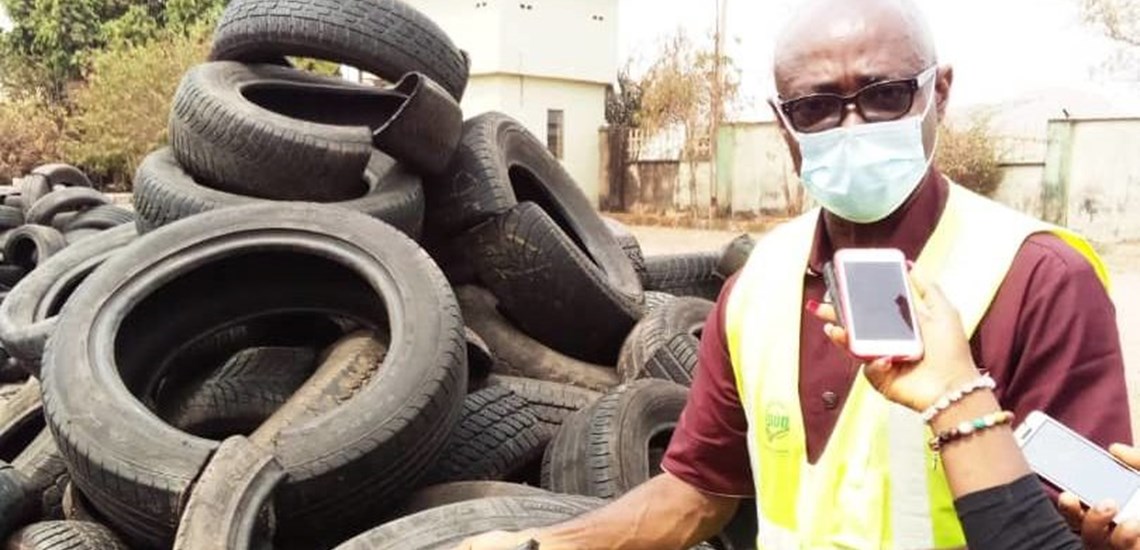Nigerian Standards Organisation clamps down on imported used tyres
SON Destroys Over 6000 Tokunbo Tyres
The Standards Organisation of Nigeria (SON) recently destroyed over 6,000 and substandard tyres confiscated in Port Harcourt, Rivers, that had been imported illegally into the country.
Supervising the destruction in Enugu, Obinna Manafa, the director, Inspectorate and Compliance Directorate of SON, said the destruction was to prevent such tyres from getting into the local market.
Mr Manafa said the products were intercepted and impounded by SON in Port Harcourt two weeks ago, following an intelligence report about a warehouse where they were stocked.
The cost of the used and stuffed tyres runs into several millions of naira, Mr Manafa said.
He said that Nigerians should know the lifespan of every tyre is four years.
“These tyres that we are destroying today, which is locally called ‘tokunbo tyres’ have been used for several years overseas.
“Before they are imported in the country, they have exceeded their four years life already.
“The third issue wrong with these ‘tokunbo’ tyres is that they are forcefully stuffed inside each other, and at times, you might have six tyres stuffed together into one tyre.
“Any tyre stuffed with another has already lost its balance on ground and the internal wire alignment of such tyre has been disarrayed also,’’ he said.
The products, according to him, failed the conformity and integrity tests.
“The decision to destroy them is to save lives and property of Nigerians, since these expired and stuffed tyres can burst at high speed on major highways and deny the user, if he or she is still alive, the value for his or her money,’’ he said.
Mr Manafa advised Nigerians to look carefully at the expiry date of a tyre before buying as well as “alert SON officials if any “new” tyre looks suspicious”.
He said the destroyed tyres would not be burnt but sold to rubber and plastic recycling companies to generate revenue for the federal government.
Source: Premium Times
Editor’s Note: Tyre recyclers in the developed nations have a duty of care to legally collect and recycle tyres. The disposal chain should follow a legitimate route from start to finish. If it is illegal to import and sell these tyres in Nigeria, then the whole recycling chain is at fault. If it were not illegal to import the part worn tyres, then the issue becomes a moral one: If a tyre is removed from a vehicle in Germany, say, because it is beyond its acceptable use in that country, and it is shipped to the UK where it is sold as a part-worn (by proper procedures0, and then when it is finished its useful life in the UK, if that tyre is then tripled, or baled, and put in a container and shipped to Nigeria (or anywhere else) where it might end up on the road again, then we have a moral burden on our shoulders – one that could be relieved by ensuring a proper recycling ethos and environment throughout Europe.


















